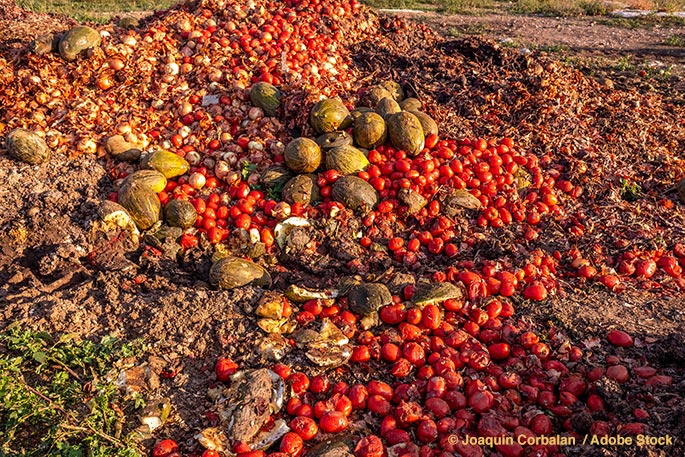
As Fast Company reports, Vermont has become the first state to “ban” food waste. Henceforth, residents and businesses will be required to put things like apple cores, potato peelings, and any spoiled food into separate bins that will be picked up periodically from the curb. Residents will also be given the option of using their food waste to compost in their home gardens.
The system is designed to reduce food waste in landfills, which in turn becomes a source of methane, a greenhouse gas. Instead, the food waste would be processed at central locations, turned into compost, or into biogas. Vermont’s approach to reducing food waste may contain some problems and lessons for businesses proposing to attack the problem themselves.
For one thing, no enforcement mechanism exists to ensure that Vermont residents and businesses comply with the new law. Authorities will not ride about peeking into trash bins to make sure that food waste is being properly separated out. The honor system will be the rule.
Also, the processing facilities may not be equipped, at least initially, to separate non-food waste items that find their way into the food waste bin, such as paper products or plastic. Compost that has been contaminated with plastic is not very useful.
Still, Vermont, being a rural state, already has a culture that encourages recycling food waste. Seventy-two percent of Vermont residents already use their food waste to make compost or as fodder for livestock. All the new law does is to centralize the process, spending money in collection and drop-off facilities. More money is being spent on anaerobic digesters that will turn food waste into biogas, thus creating another source of domestically produced, relatively clean energy.
It remains to be seen whether Vermont’s approach to reducing food waste will work. It all depends on the willingness of the people to comply without sanctions for failure to do so.




































































































































 Three Ways to Engage Teams and Clients to Maximize Your Recycling Program Engagement
Three Ways to Engage Teams and Clients to Maximize Your Recycling Program Engagement  How to Integrate Accessibility Into Your Sustainability Planning
How to Integrate Accessibility Into Your Sustainability Planning  Why Park Benches Can Promote Workplace Well-Being
Why Park Benches Can Promote Workplace Well-Being 
